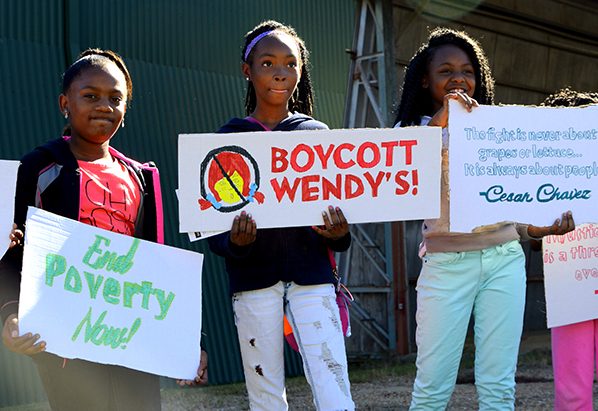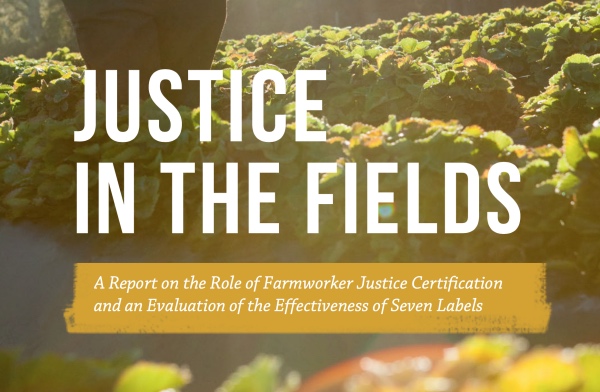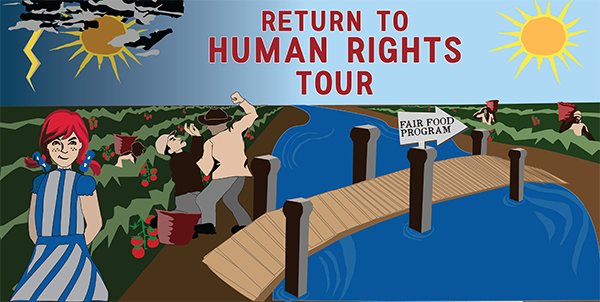Wendy’s latest public relations ploy in response to Campaign for Fair Food isn’t fooling anyone…
To put “lipstick on a pig” is a rhetorical expression, used to convey the message that making superficial or cosmetic changes is a futile attempt to disguise the true nature of a product.
The latest “news” from Wendy’s PR shop…
The Code will also require third party reviews related to the human rights and labor practices of certain produce suppliers. The decision to add third party reviews was due in part to the nature of agricultural work, its workforce, and an evaluation of various risk factors.

A brief history of Wendy’s public relations responses to a human rights crisis…
- Wendy’s first response to the advent of the groundbreaking Fair Food Program was to abandon its longtime Florida suppliers and shift its purchases to Mexico, where human rights violations are endemic and go effectively unchecked, hoping no one would notice the company’s attempt to run from social responsibility.
- When their consumers noticed and began pressuring the company to join the FFP, Wendy’s made a great show of publishing a new Supplier Code of Conduct, hoping no one would notice that it was nothing more than a collection of empty standards with no means for, or commitment to, enforcement.
- Now, after their consumers called the company out for the glaring shortcomings of the Code, Wendy’s comes out with a new tweak, promising “third party reviews” of “certain produce suppliers,” hoping no one will notice that, as the CIW has said all along, and as other authorities now recognize, third party reviews alone are woefully inadequate, and the only way to ensure that workers’ fundamental human rights are protected is through the kind of real worker participation and enforcement mechanisms only found in the Fair Food Program.
Enough is, finally, enough. It’s time for Wendy’s to stop pussyfooting around the ongoing human rights crisis in its produce supply chain and step up to real social responsibility by joining the Fair Food Program — the undisputed gold standard for human rights protection in agriculture today.
Sooner or later, the last step in this dance leads to the Fair Food Program…

Third party audits are the very definition of a “superficial or cosmetic” approach to social responsibility. They are, at best, a snapshot of conditions on a farm, a momentary glimpse of labor relations on the day of the audit that tell the buyer (and its consumers looking for real information on the working conditions behind the products they buy) little or nothing about the conditions that prevail the other 364 days of the year.

